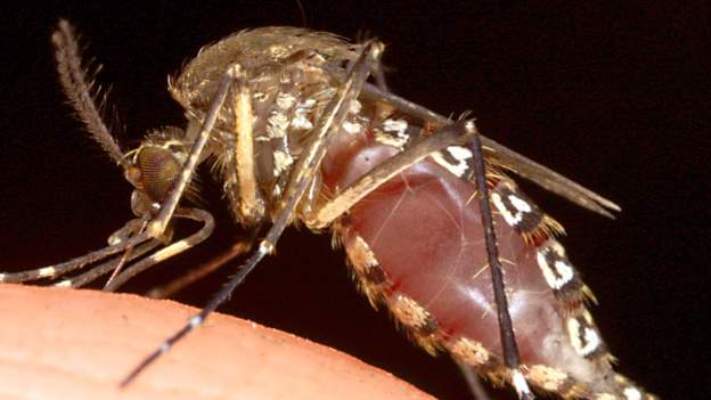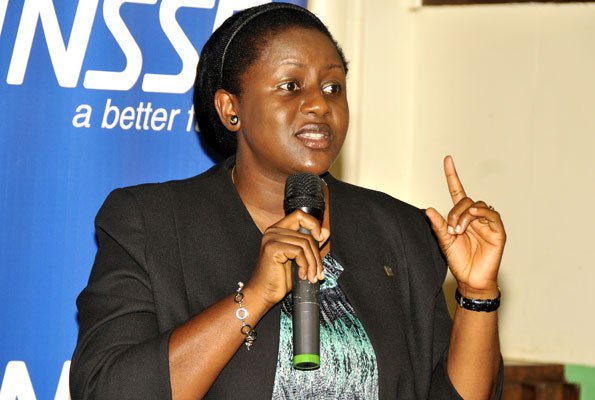Experts have called for increased funding to end malaria related deaths especially among children and pregnant mothers.
The call was led by Jane Irene Nabakooza, Senior Medical Officer and Technical Lead for Malaria Chemo-prevention and Vaccines at the Ministry of Health, during a Press Briefing held at Parliament, ahead of the National Children Malaria Conversation Week.
“We need to support Ministry of Health to make sure we reduce the burden of this monster, the burden that is contributing highly to the ill health and eventually affecting the National Development Plan where we want to make sure that everyone is productive and contribute to the economic development. We can’t do that with the current malaria burden,” said Nabakooza.
She added that the impact of malaria on children and pregnant mothers is affecting their quality of lives, noting that in the first two years when they get malaria, they will die and even if these children are lucky to survive malaria, they can’t thrive when they have malaria because they will be out of school, their academic performance will not be good and they will not acquire the necessary skills.
“Malaria is one of the limitations of child survival. A child that has suffered from malaria can’t compete with another child that hasn’t suffered from malaria because they don’t have the same mental levels as the child that hasn’t suffered from malaria. We also know that a mother that has suffered from malaria during pregnancy is likely to give birth to a child that is mentally retarded in terms of making judgments, emotional control,” remarked Nabakooza.
Geoffrey Mutiwa (Bunyole West MP), explained that the National Children Malaria conversation week set to occur as prelude to the International Children’s Day and the initiative will spotlight the devastating impact of malaria on pregnant women and children, while at the same time underline the critical funding gaps that perpetuate its prevalence and rally Ugandans to act against malaria.
“Malaria remains Uganda’s most significant health challenge especially for vulnerable groups such as pregnant women and children. And according to the Annual Global Malaria report 2023, Uganda is among the top three countries globally with the highest malaria burden. Annually, over 3million cases of malaria are reported among children leading to over 50 deaths every day 28 of which are children under the age of 5years,” said Mutiwa.
He further added that Malaria in pregnant mothers isn’t just a health issue, it is a national crisis, it affects mothers, babies and the future of Uganda, thus the need by Parliament to fund free Fansidar for women across all health facilities in order to significantly reduce malaria related deaths and provide healthy survival rates.
“Currently, 28% of malaria survival rates in Uganda are attributed to Malaria in pregnancy. Families in Uganda spend almost 25% of their income on malaria treatment, a financial burden that could be eliminated through preventive measures like fansidar,” Mutiwa added.
Santa Okot (Aruu North MP) noted that MPs of the Parliamentary Forum on Malaria, are putting a lot of effort mainly on advocacy on reduction and elimination of malaria and with malaria being the main killer disease in Uganda, there is need to intensify campaigns to match the level of moblisation witnessed at the height of HIV/AIDs in Uganda.
“We would like to change the way of moblisation for eradication of malaria to look like when HIV/AIDs started. You remember during the HIVperiod, there would be media moblisation almost every day and I want that to change to malaria. There are efforts to make sure that when budgeting, the malaria budget is picked out of the main health budget because if we batch it into health, it will be swallowed up. Although there has been increase of the budget for Malaria, we need to do more that malaria budget is picked out of the health budget and then monitored closely,” said Okot.
Although Hellen Auma (Busia DWR) thanked Government for the distribution of mosquito nets across the country, she called for sensitization on their usage and increased awareness of the threat posed by malaria, given that many people still underestimate the disease’s threat on human life.
Auma said, “After getting the nets, they use them for other activities at home. So I think, we should sensitize how to use the nets. I think we should look forward to have a vaccine that can prevent malaria because having the drugs alone isn’t enough because malaria is one of the diseases that is killing our people and yet most of the people in Uganda don’t take malaria as a serious disease, so we should sensitize our people and they be aware that malaria is a very dangerous disease.”
Agnes Acibu (Nebbi DWR) called for increased empowerment of members of the Village Health Teams, saying these have been critical and educating communities on threats of malaria.
“I want to thank the Ministry of Health for engaging the Village Health Teams but that isn’t enough, we need to empower them. Right now, if the Government hadn’t involved the VHTs at Village level, I think the death toll was going to be more than that,” said Acibu.





